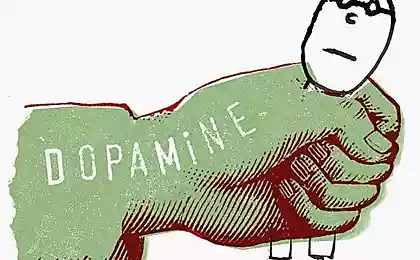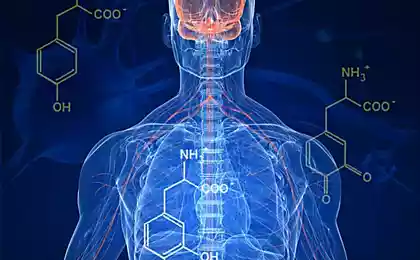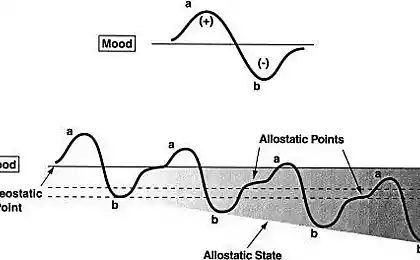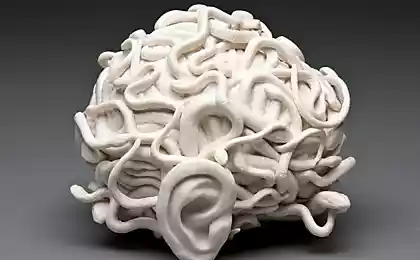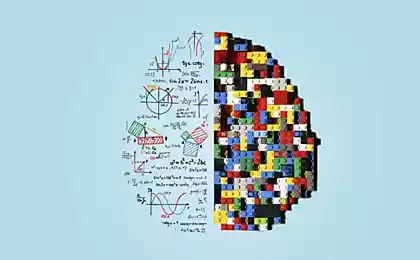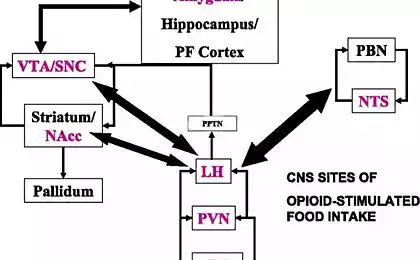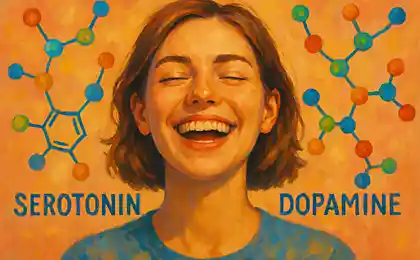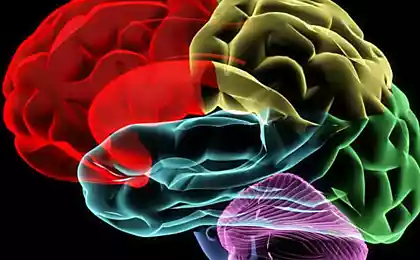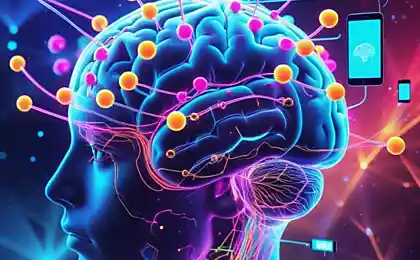648
Dopamine levels: how to regain the pleasure.
Let's imagine two people are the same weight and height. Both in the brain 40.000 dopamine receptors (conditional), but their sensitivity is different. One person in the sensitivity of receptors is reduced in 10 times and the other normal. Both people see the same pleasant sight, say a cute kitten. This event causes the production of, say, one in 10,000 molecules of dopamine, i.e., dopamine is the same in both. But what is the perception of this event? In this case, the first person the satisfaction by 25% and the other 2.5%.
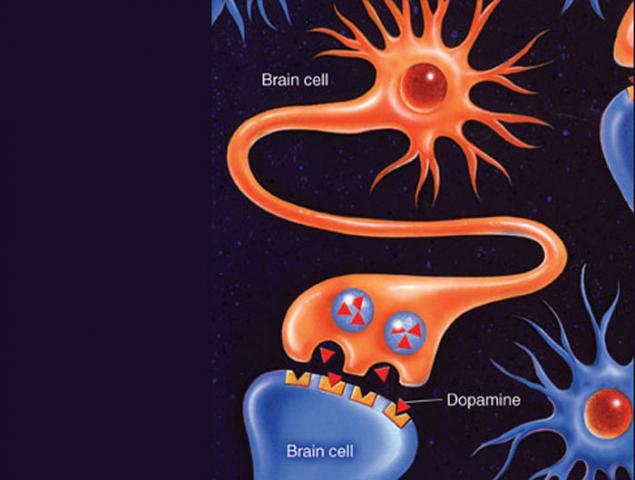
The first person focuses on what the cat is cute. And the second thought: the cat is cute. but he has toxoplasmosis and generally he dies on the street of starvation. And with each such event, the first person will assume that his day was a success, and the second? The second is, of course, dissatisfied with the day. Reduced levels of dopamine reduces our ability to see the "rewarding" -something positive and increases the sensitivity to disturbing, "threatening". Throughout its life, the first person will almost never suffer from dissatisfaction, but he will have little incentive to personal development. He would be pleased, if you just fed, dressed for the weather, etc. it almost never will want to change something in yourself or in life. But this man for the society of consumption is not beneficial: it is very difficult to force people to buy something and change something.
The second man is sure to be dissatisfied with something. He can always strive to fix something for the better, but it won't bring him pleasure. And it is likely that such people will look for strong stimulants to produce 40,000 molecules of dopamine, and it has a high risk of addiction.
The second important point is not associated with pleasant moments, but with problems. If the first person screws up and he will fall the production of dopamine (say 20,000 molecules), it will feel worse than 50%. And it will force him to avoid unpleasant situations in the future, i.e. learning from the mistakes. But the second man's health will decrease by only 5%. I.e. this reduction is clearly insufficient to draw conclusions.
German neuroscientists have hypothesized that perhaps a lack of dopamine receptors reduces the ability of people to learn from their mistakes, that is, to draw the right conclusions from a negative experience and not repeat the actions that led to bad consequences (Klein et al., 2007). In General, the obtained results indicate that the normal operation of dopamine systems of the brain necessary for a person to be able to effectively learn from their mistakes. Disruption of dopamine neurons (e.g., due to lack of dopamine receptors, as the carriers of allele A1) may lead to the neglect of negative experiences. People simply stop responding to the negative consequences of their actions and therefore can repeatedly step on the same rake."
There are several mutations in genes of receptors to dopamine. In the case of dependencies can be tested, in order to correctly choose the tactics of treatment for such patients.
Mutation C2137T (Glu713Lys) in the gene for the dopamine receptor 2 type, DRD2
This mutation is associated with alcoholism, drug addiction, nicotine addiction, gambling. А1А1 genotype may lead to a relative reduction in the number of DRD2 receptors, thereby weakening the response to the already reduced number of dopamine. The reduction in D2 dopamine receptor reduces sensitivity to the consequences of negative actions, this may explain the increased risk of developing addictive behaviors in A1 carriers of the allelic variant.
Conducted research related to the study of the relationship of the genotype at the marker C2137T and learning based on the processing of stimuli feedback – estimated the ability of people to learn to avoid actions with negative consequences. In the group of carriers of the minor (rarer) allele A1 it had been less effective than in the group of carriers of the primary allele.
There is also the DRD4 gene, associated with the desire for new experiences. The long allele of this gene with increased frequency it occurs in families of patients with hereditary form of alcoholism, and he associated with "fashionable" children's diagnosis – syndrome of hyperactivity with impaired attention. Children with this diagnosis in the schools can not sit at their desks. Interestingly, this disease can be treated effectively without any pills at the gym with your feedback. Children show a cartoon on the computer screen, and the cartoon looks drastically when they are attentive. Care is fixed by the encephalogram, and depending on the care of children changes the sharpness of the cartoon.
Scientists studying "syndrome lack of rewards" (a condition in which the "rewarding center" of the brain is activated slowly), had an interesting hypothesis about the possible change to the low density of dopamine receptors. It is well known that under normal conditions dopamine is released into the synapse, binds to receptors of dopamine, causes euphoria and relieves stress. Syndrome of lack of remuneration is characterized by decrease in basal dopamine levels due to insufficient capacity of the receptors, and this leads to the need for human factors that can cause increase levels of dopamine.
If this behavior long-term (addiction), it perestraivat the brain and worsens the situation. For example, experiments with cocaine (which causes a strong secretion of dopamine).
The effects of cocaine was studied in rats. In rats with formed cocaine-dependent neurons mediating the effects of cocaine have more synapses than in normal rats. That is, the cocaine had on rats, the same effect as training. That is, a person or a rat who used the drug was "trained" to respond to a drug, and he has formed a pathological neural connections that make for him the experience easily retrievable because neural connections are already there. While other neural connections that normal gives him a pleasant feeling of healthy experiences, due to the competitive formation are weakened. That is, the use of drugs, especially at an early age changes the morphology and anatomy of neurons, structure of the cerebral cortex, and oclonal development of normal way.
Thus, the external increase in dopamine helps briefly improve the condition, but will dull the sensitivity of dopamine receptors. The sharper will be the rise of dopamine, the greater will be his fall after. Despite changes of dopamine, the dopamine sensitivity will fall.
That's why many people, often endowed with power or money, develop schizoid and sadistic behavior. In order to have fun they have to resort to hyperstimulus. For people with normal receptors these hyperstimulus look wild and disgusting. In principle, the basis of schizophrenia is the hyperstimulation of dopamine receptors.
Many aspects of our life are associated with dopamine levels. For example, improving the social status associated with the receptor density of dopamine D2/D3 in the striatum region of the brain responsible for reward, motivation and other behavioral processes, in which a crucial role is played by dopamine. The results of the study show that people who have attained higher social status, attach greater importance to the reward and stimulation as in their striatum more objects that are affected by dopamine. Discovered that the low receptor density of dopamine was associated with low social status, and high, respectively, with higher social status. A similar relationship was revealed when our volunteers talked about the support that they have received from friends, relatives or someone important to them.
These interesting data highlight the desire to increase social status as the primary social process. It sounds plausible that people with higher levels of D2 receptors, that is, with higher motivation and involvement in public relations will achieve greater success and higher levels of social support.
Low levels of receptor D2/D3 may contribute to the risk for alcoholism among people whose relatives have abused alcohol. People with low receptor density D2/D3 tend to have a lower social status and less support, and these social factors increase the risk that a person will become an alcoholic or a drug addict.
Opportunities for self-actualization is also associated with dopamine receptors. In the absence of demand and the possibility of realization of individual potentials of consciousness man ceases to the satisfaction of dopamine neurons remain "hungry" and have reduced mood and level of self-esteem. It turns out that a large number of dopamine receptors can lead to low self-esteem person due to a shortage of dopamine due to the possibility of realization of individual potentials of consciousness. If you have a large number of dopamine receptors people have a greater desire for knowledge, development and the possibilities for individual implementation, which will increasingly reflect the reasonableness of the conduct. Therefore, people with high amounts of dopamine neurons boredom and the inability to simply disastrous.
A few tips on how to restore the sensitivity of dopamine receptors and dopamine levels. I will say in advance that this is only General advice, guarantee one hundred percent recovery no one will. Suggest to do a genetic test to correctly assess the amount of work.
Dopamine Protocol.1. Dopamine detox.
Remove all external sources of dopamine: lottery, cigarettes, drugs, Masturbation, coffee, shopping. To remove all false pleasures, leaving only the natural needs.It takes time and patience. Do not give up all at once, do it gradually.
From addiction difficult to get rid of, but this is the first step in the return of the taste of life. You know that among smokers, 40% more depression. The probability of depression in ex-smokers drops dramatically after a few months after Smoking cessation. Look at the picture. See how according to reduce the level of dopamine?
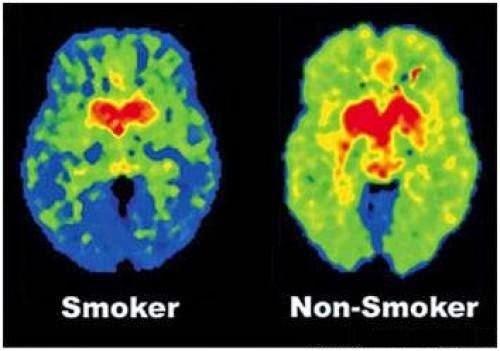
For example, take Smoking. Low level of dopamine, which occurs as a result of quitting Smoking actually contributes to relapse to Smoking. Dopamine serves as a chemical signal in the processes of regulation of reward and motivation. Recent studies show that one of the main functions of dopamine is to send a signal to the brain to "look for something nice". Indeed, dopamine is released in the process of drug use, Smoking, sex and eating. Because dopamine is released in response to Smoking, it is logical that the level of dopamine out of the norm, when the smoker wants to quit. Scientists from the Medical College of Baylor in Texas conducted a study to characterize these changes. They studied mice that were administered nicotine, the active component of cigarettes, for several weeks. The researchers then reversed the nicotine and measured the subsequent changes in dopamine signaling in the brain. They reported that withdrawal from nicotine leads to a deficiency of dopamine, which is repeated exposure to nicotine.
2. Neschastnaja the monotony of the environment.
To go to a boring predskazuemo place (or create such). No news, movies. Make your mini-monastery.
The voyage of the Arctic asked: -"How do You determine the time necessary return of the polar expedition? ". What conqueror of the Arctic is quite simply answered: -"my expedition has only one woman. When recruiting people for an expedition I choose the ugly woman meeting. And if in the period of the expedition, I this woman seems beautiful, it's time to back home on the mainland."
3.Cultivate modesty, do monotonous repetitive things.
The skill to do small business, conceiving and implementing them. To plant a flower bed, to drive a nail. For rehabilitation do not plan Affairs, occupying more than two hours. Then, over time, can increase their duration. Rhythmic repetitive actions help to stabilize the fluctuations of neurotransmitters.
4. Technique of mindfulness. Acceptance of negative emotions without tightening negative spiral. Learning to withstand the feelings.
5. The technique of presence in the present moment, to avoid fantasies about the past or the future. The flow of dopamine may increase already from remembering the encouragement. The mere reflection on a positive experience it can be a small encouragement. We all love to dream about interesting things to cheer yourself up. Even if it's negative, it is possible to enjoy the performance even as one goes from the chase, defeats the enemy, solve the world's problems or cope with personal difficulties (which is why we love fighters, for example). However, some people abuse this method, deliberately overtaxed this reward system, artificially triggering interesting memories and thoughts again and again since it naturally produces the good mood neurotransmitters (dopamine and serotonin), losing self-control.
6. Dealing with the fear of death (for people without suicide risk),
7. Cognitive therapy and cognitive personal progress ( work on yourself and your actions) on the principle of simple algorithms and analyze daily, like doing diaries: thought, assessed, responded to, why, what are the other options.
8. Making a list of "present joys" (see the distinction between true and false pleasure). Make and follow a network of small pleasures.
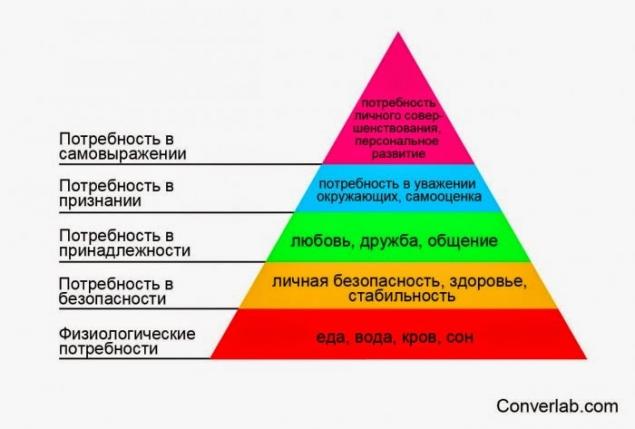
9. The quality of sleep. Lack of sleep leads to a sharp decrease in dopamine receptor! But it had nothing to do with changes in the level of neurotransmitter.
10. To navigate in everyday life in the process, not the result.
Individuals who once focused on the ability to get satisfaction from anything, can't rebuild their behavior until, until he gets his way. Desire for pleasure "covers" all common sense. published Author: Andrey Blueskin P. S. And remember, only by changing their consumption — together we change the world! ©
Join us in Facebook , Vkontakte, Odnoklassniki
Source: www.beloveshkin.com/2015/03/uroven-dofamina-kak-vernut-sebe-nastoyashhee-udovolstvie.html

The first person focuses on what the cat is cute. And the second thought: the cat is cute. but he has toxoplasmosis and generally he dies on the street of starvation. And with each such event, the first person will assume that his day was a success, and the second? The second is, of course, dissatisfied with the day. Reduced levels of dopamine reduces our ability to see the "rewarding" -something positive and increases the sensitivity to disturbing, "threatening". Throughout its life, the first person will almost never suffer from dissatisfaction, but he will have little incentive to personal development. He would be pleased, if you just fed, dressed for the weather, etc. it almost never will want to change something in yourself or in life. But this man for the society of consumption is not beneficial: it is very difficult to force people to buy something and change something.
The second man is sure to be dissatisfied with something. He can always strive to fix something for the better, but it won't bring him pleasure. And it is likely that such people will look for strong stimulants to produce 40,000 molecules of dopamine, and it has a high risk of addiction.
The second important point is not associated with pleasant moments, but with problems. If the first person screws up and he will fall the production of dopamine (say 20,000 molecules), it will feel worse than 50%. And it will force him to avoid unpleasant situations in the future, i.e. learning from the mistakes. But the second man's health will decrease by only 5%. I.e. this reduction is clearly insufficient to draw conclusions.
German neuroscientists have hypothesized that perhaps a lack of dopamine receptors reduces the ability of people to learn from their mistakes, that is, to draw the right conclusions from a negative experience and not repeat the actions that led to bad consequences (Klein et al., 2007). In General, the obtained results indicate that the normal operation of dopamine systems of the brain necessary for a person to be able to effectively learn from their mistakes. Disruption of dopamine neurons (e.g., due to lack of dopamine receptors, as the carriers of allele A1) may lead to the neglect of negative experiences. People simply stop responding to the negative consequences of their actions and therefore can repeatedly step on the same rake."
There are several mutations in genes of receptors to dopamine. In the case of dependencies can be tested, in order to correctly choose the tactics of treatment for such patients.
Mutation C2137T (Glu713Lys) in the gene for the dopamine receptor 2 type, DRD2
This mutation is associated with alcoholism, drug addiction, nicotine addiction, gambling. А1А1 genotype may lead to a relative reduction in the number of DRD2 receptors, thereby weakening the response to the already reduced number of dopamine. The reduction in D2 dopamine receptor reduces sensitivity to the consequences of negative actions, this may explain the increased risk of developing addictive behaviors in A1 carriers of the allelic variant.
Conducted research related to the study of the relationship of the genotype at the marker C2137T and learning based on the processing of stimuli feedback – estimated the ability of people to learn to avoid actions with negative consequences. In the group of carriers of the minor (rarer) allele A1 it had been less effective than in the group of carriers of the primary allele.
There is also the DRD4 gene, associated with the desire for new experiences. The long allele of this gene with increased frequency it occurs in families of patients with hereditary form of alcoholism, and he associated with "fashionable" children's diagnosis – syndrome of hyperactivity with impaired attention. Children with this diagnosis in the schools can not sit at their desks. Interestingly, this disease can be treated effectively without any pills at the gym with your feedback. Children show a cartoon on the computer screen, and the cartoon looks drastically when they are attentive. Care is fixed by the encephalogram, and depending on the care of children changes the sharpness of the cartoon.
Scientists studying "syndrome lack of rewards" (a condition in which the "rewarding center" of the brain is activated slowly), had an interesting hypothesis about the possible change to the low density of dopamine receptors. It is well known that under normal conditions dopamine is released into the synapse, binds to receptors of dopamine, causes euphoria and relieves stress. Syndrome of lack of remuneration is characterized by decrease in basal dopamine levels due to insufficient capacity of the receptors, and this leads to the need for human factors that can cause increase levels of dopamine.
If this behavior long-term (addiction), it perestraivat the brain and worsens the situation. For example, experiments with cocaine (which causes a strong secretion of dopamine).
The effects of cocaine was studied in rats. In rats with formed cocaine-dependent neurons mediating the effects of cocaine have more synapses than in normal rats. That is, the cocaine had on rats, the same effect as training. That is, a person or a rat who used the drug was "trained" to respond to a drug, and he has formed a pathological neural connections that make for him the experience easily retrievable because neural connections are already there. While other neural connections that normal gives him a pleasant feeling of healthy experiences, due to the competitive formation are weakened. That is, the use of drugs, especially at an early age changes the morphology and anatomy of neurons, structure of the cerebral cortex, and oclonal development of normal way.
Thus, the external increase in dopamine helps briefly improve the condition, but will dull the sensitivity of dopamine receptors. The sharper will be the rise of dopamine, the greater will be his fall after. Despite changes of dopamine, the dopamine sensitivity will fall.
That's why many people, often endowed with power or money, develop schizoid and sadistic behavior. In order to have fun they have to resort to hyperstimulus. For people with normal receptors these hyperstimulus look wild and disgusting. In principle, the basis of schizophrenia is the hyperstimulation of dopamine receptors.
Many aspects of our life are associated with dopamine levels. For example, improving the social status associated with the receptor density of dopamine D2/D3 in the striatum region of the brain responsible for reward, motivation and other behavioral processes, in which a crucial role is played by dopamine. The results of the study show that people who have attained higher social status, attach greater importance to the reward and stimulation as in their striatum more objects that are affected by dopamine. Discovered that the low receptor density of dopamine was associated with low social status, and high, respectively, with higher social status. A similar relationship was revealed when our volunteers talked about the support that they have received from friends, relatives or someone important to them.
These interesting data highlight the desire to increase social status as the primary social process. It sounds plausible that people with higher levels of D2 receptors, that is, with higher motivation and involvement in public relations will achieve greater success and higher levels of social support.
Low levels of receptor D2/D3 may contribute to the risk for alcoholism among people whose relatives have abused alcohol. People with low receptor density D2/D3 tend to have a lower social status and less support, and these social factors increase the risk that a person will become an alcoholic or a drug addict.
Opportunities for self-actualization is also associated with dopamine receptors. In the absence of demand and the possibility of realization of individual potentials of consciousness man ceases to the satisfaction of dopamine neurons remain "hungry" and have reduced mood and level of self-esteem. It turns out that a large number of dopamine receptors can lead to low self-esteem person due to a shortage of dopamine due to the possibility of realization of individual potentials of consciousness. If you have a large number of dopamine receptors people have a greater desire for knowledge, development and the possibilities for individual implementation, which will increasingly reflect the reasonableness of the conduct. Therefore, people with high amounts of dopamine neurons boredom and the inability to simply disastrous.
A few tips on how to restore the sensitivity of dopamine receptors and dopamine levels. I will say in advance that this is only General advice, guarantee one hundred percent recovery no one will. Suggest to do a genetic test to correctly assess the amount of work.
Dopamine Protocol.1. Dopamine detox.
Remove all external sources of dopamine: lottery, cigarettes, drugs, Masturbation, coffee, shopping. To remove all false pleasures, leaving only the natural needs.It takes time and patience. Do not give up all at once, do it gradually.
From addiction difficult to get rid of, but this is the first step in the return of the taste of life. You know that among smokers, 40% more depression. The probability of depression in ex-smokers drops dramatically after a few months after Smoking cessation. Look at the picture. See how according to reduce the level of dopamine?

For example, take Smoking. Low level of dopamine, which occurs as a result of quitting Smoking actually contributes to relapse to Smoking. Dopamine serves as a chemical signal in the processes of regulation of reward and motivation. Recent studies show that one of the main functions of dopamine is to send a signal to the brain to "look for something nice". Indeed, dopamine is released in the process of drug use, Smoking, sex and eating. Because dopamine is released in response to Smoking, it is logical that the level of dopamine out of the norm, when the smoker wants to quit. Scientists from the Medical College of Baylor in Texas conducted a study to characterize these changes. They studied mice that were administered nicotine, the active component of cigarettes, for several weeks. The researchers then reversed the nicotine and measured the subsequent changes in dopamine signaling in the brain. They reported that withdrawal from nicotine leads to a deficiency of dopamine, which is repeated exposure to nicotine.
2. Neschastnaja the monotony of the environment.
To go to a boring predskazuemo place (or create such). No news, movies. Make your mini-monastery.
The voyage of the Arctic asked: -"How do You determine the time necessary return of the polar expedition? ". What conqueror of the Arctic is quite simply answered: -"my expedition has only one woman. When recruiting people for an expedition I choose the ugly woman meeting. And if in the period of the expedition, I this woman seems beautiful, it's time to back home on the mainland."
3.Cultivate modesty, do monotonous repetitive things.
The skill to do small business, conceiving and implementing them. To plant a flower bed, to drive a nail. For rehabilitation do not plan Affairs, occupying more than two hours. Then, over time, can increase their duration. Rhythmic repetitive actions help to stabilize the fluctuations of neurotransmitters.
4. Technique of mindfulness. Acceptance of negative emotions without tightening negative spiral. Learning to withstand the feelings.
5. The technique of presence in the present moment, to avoid fantasies about the past or the future. The flow of dopamine may increase already from remembering the encouragement. The mere reflection on a positive experience it can be a small encouragement. We all love to dream about interesting things to cheer yourself up. Even if it's negative, it is possible to enjoy the performance even as one goes from the chase, defeats the enemy, solve the world's problems or cope with personal difficulties (which is why we love fighters, for example). However, some people abuse this method, deliberately overtaxed this reward system, artificially triggering interesting memories and thoughts again and again since it naturally produces the good mood neurotransmitters (dopamine and serotonin), losing self-control.
6. Dealing with the fear of death (for people without suicide risk),
7. Cognitive therapy and cognitive personal progress ( work on yourself and your actions) on the principle of simple algorithms and analyze daily, like doing diaries: thought, assessed, responded to, why, what are the other options.
8. Making a list of "present joys" (see the distinction between true and false pleasure). Make and follow a network of small pleasures.

9. The quality of sleep. Lack of sleep leads to a sharp decrease in dopamine receptor! But it had nothing to do with changes in the level of neurotransmitter.
10. To navigate in everyday life in the process, not the result.
Individuals who once focused on the ability to get satisfaction from anything, can't rebuild their behavior until, until he gets his way. Desire for pleasure "covers" all common sense. published Author: Andrey Blueskin P. S. And remember, only by changing their consumption — together we change the world! ©
Join us in Facebook , Vkontakte, Odnoklassniki
Source: www.beloveshkin.com/2015/03/uroven-dofamina-kak-vernut-sebe-nastoyashhee-udovolstvie.html
The hierarchy of the mind, intelligence and senses
The unique healing power of black radish: the old folk recipes
